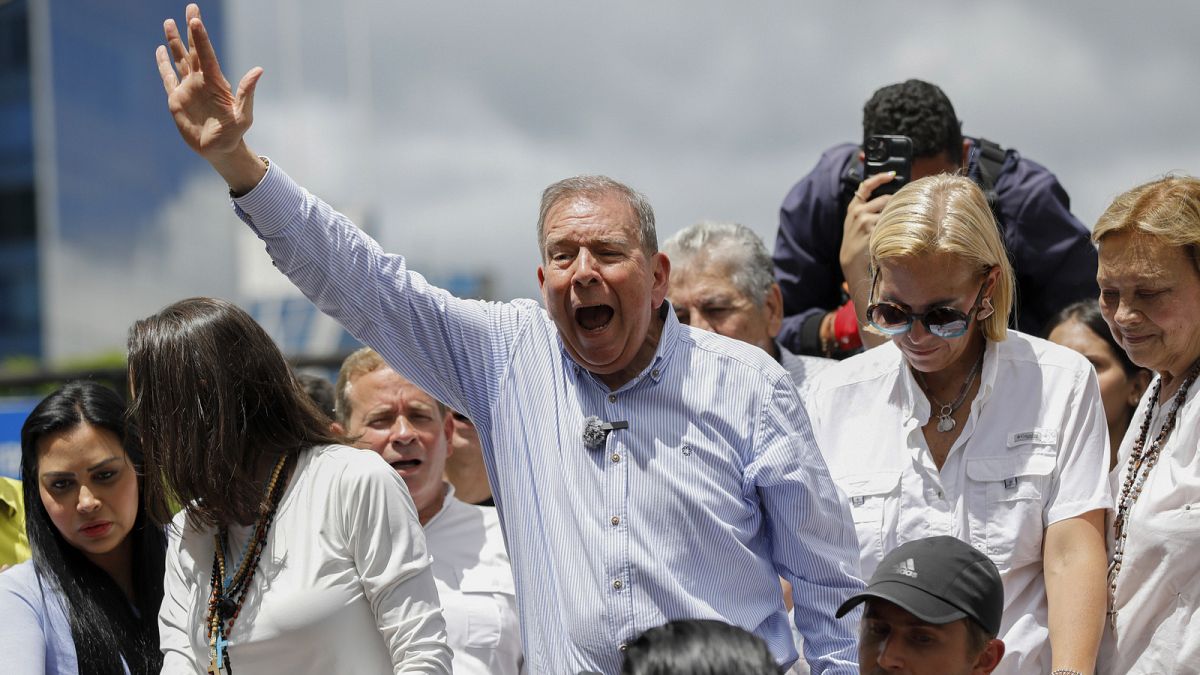The European Parliament recently made a symbolic vote recognizing Edmundo González Urrutia as the legitimate and democratically elected President of Venezuela. This move marks the first time mainstream conservatives have joined forces with the far right in the new legislature. The resolution, which carries no legal weight, was backed by the European People’s Party, European Conservatives and Reformists, and the far-right Patriots for Europe. This has caused a divide within the parliament’s pro-European coalition and has sparked discussions on potential collaborations between the center-right and far-right factions.
The European Parliament’s biggest faction, the EPP, had previously committed to working with pro-EU allies after the elections. However, the Venezuela vote has shown a potential shift in alliances as the center-right looks towards the far right for support on certain issues. The resolution calls on EU governments to recognize González as the legitimate president and to request an international arrest warrant for Nicolás Maduro. The Venezuelan opposition has presented evidence suggesting González’s landslide victory in the presidential poll, which has been supported by a UN report. However, member states are waiting for the Venezuelan electoral council to release verified results before making any official recognition.
González, who has been granted political asylum in Spain, has also been recognized as the legitimate president in the Spanish parliament. This move has caused criticism towards the socialist government of Pedro Sánchez for not declaring him as the rightful president of Venezuela. The split within the pro-EU coalition in the European Parliament reflects the complex political dynamics surrounding Venezuela and its disputed presidency. The resolution passed by the European Parliament aims to support the Venezuelan people who oppose the Maduro regime and calls for targeted sanctions against regime members rather than the general population.
The tensions between the Venezuelan regime and the EU, particularly Spain, have escalated following Maduro’s disputed re-election. The Spanish ambassador in Caracas was expelled by the Maduro regime after the Spanish defense minister referred to the regime as a dictatorship. The EU’s top diplomat, Josep Borrell, echoed this sentiment, describing the regime as dictatorial and authoritarian. Last week, three EU citizens were detained in Venezuela on accusations of plotting to assassinate Maduro, further complicating the diplomatic relationship between Venezuela and the EU.
Overall, the European Parliament’s recognition of Edmundo González Urrutia as the legitimate president of Venezuela signifies a new political dynamic within the European legislature. The collaboration between mainstream conservatives, the far right, and center-right factions sheds light on potential shifts in alliances and future cooperation on certain policies. The situation in Venezuela remains complex, with ongoing tensions between the Maduro regime, opposition forces, and international actors like the EU. The resolution may serve as a symbolic gesture of support for the Venezuelan people but also highlights the challenges of navigating international politics in the context of disputed elections and authoritarian regimes.











